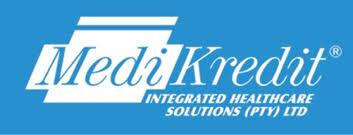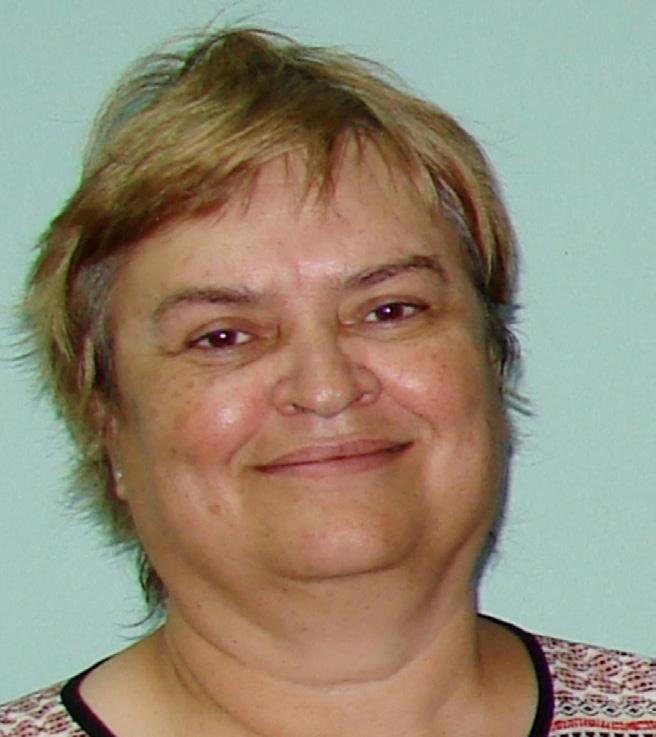
25 minute read
2nd Draft of the COFI Bill
The Medical Schemes Industry and the 2ND DRAFT OF THE COFI BILL
By Debbie Pearmain, BA LLB LLD LEGAL CONSULTANT, BHF
Advertisement
The second draft of the Conduct of Financial Institutions Bill (COFI Bill) was published by the National Treasury for public comment on 29 September 2020. In a notice accompanying the Bill, Treasury stated that references to medical schemes and medical scheme administrators have been removed from the revised draft Bill pending the conclusion of the work of a task team between Treasury, the Council for Medical Schemes the Prudential Authority and the Financial Sector Conduct Authority (FSCA).
The question for schemes is whether, if they are subsequently included by the task team, there will be a later opportunity for them to comment on the revised Bill.
Scrutiny of the second draft reveals that medical schemes and administrators are still included under certain sections. This is because the Bill uses the terms ‘financial product’, ‘financial service’ and ‘financial institution’ as defined in the Financial Sector Regulation Act (FSRA). Medical schemes and administrators satisfy these definitions. Although the COFI Bill proposes extensive amendments to the FSRA, they do not affect the definitions of these terms. This means that whenever the COFI Bill refers to a ‘financial institution’, medical schemes and administrators are included.
Schedule 1 lists the activities that must be licensed by the FSCA. Medical schemes are expressly excluded. Under the activity ‘providing a financial product’ there is a note stating that ‘medical schemes are not subject to the COFI Bill pending the outcome of policy engagement between DOH and NT’. However this is more of a drafting note than a provision of the Bill itself. Also it appears only in Schedule 1, which deals specifically with licensing. It does not appear in the main body of the Bill. This means simply that schemes are not required to be licensed under the Bill. The COFI Bill is a key pillar in the government’s Twin Peaks financial sector regulatory reform process that aims to entrench better financial customer outcomes in the South African financial sector.
There is, however, no similar note for medical scheme administrators. They are therefore required to be licensed under the Bill. Under the activity of ‘Distribution’ in Schedule 1 it states that ‘medical schemes are excluded; but an intermediary that performs this activity is not excluded’.
The term ‘intermediary’ is not defined in the Bill. Technically it can therefore include a scheme administrator who engages in the activity of ‘Distribution’. This is especially relevant because section 58 of the Medical Schemes Act Debbie Pearmain, Legal Consultant, BHF refers to ‘administration as an interaction in respect of a financial mediary’ when regulating administra- medical schemes and promote the tors. schemes they administer. There is also another licensed activity in Sched‘Distribution’ in Schedule 1 of the ule 1 called ‘general administration’, Bill includes providing a facility or which includes receiving, submitting performing a service or any other act: or processing the claims of a financial (a) as a result of which a person may scheme administrators and they are enter into or enters into any trans- not expressly excluded by any notes. product. This clearly covers medical product; or Section 4 (1) of the Bill says that ‘a (b) with a view that a person acquire, financial institution that provides a buy, replace or vary one or more financial product or a financial service financial products. is subject to this Act’. The definition of ‘financial product’ in the FSRA, and Administrators provide a facility to join therefore the COFI Bill, includes a medical schemes that they administer, health service benefit provided by a advise members on scheme choice medical scheme as defined in section and benefit options, enrol them in 1(1) of the Medical Schemes Act. National Treasury aims to finalise the Bill for Cabinet’s approval before submitting it to parliament early next year. “ “ 48
There are sections of the Bill that do not deal with licensing. They deal with advertising and disclosure, safeguarding of assets of financial institutions, post-sale barriers and obligations, oversight arrangements, reporting and public disclosure, among others. These provisions all refer to ‘financial institutions’ and not ‘licensed financial institutions’. They therefore include medical schemes as well as licensed financial institutions such as administrators. The chapters that do apply to medical schemes give the FSCA powers over certain affairs of medical schemes.
For example, section 8 says that a financial institution must have arrangements in place to comply with the COFI Act on an ongoing basis. If the FSCA reasonably believes that the effectiveness of such arrangements requires further investigation it may direct the financial institution to perform an independent review of the arrangements by a person approved by the FSCA at the expense of the institution. Section 41 says that the FSCA may, where it identifies a failure by a financial institution to comply with section 41, direct the institution to submit a compliance remediation plan to the FSCA.
Chapters 2 and 4 of the Bill on licensing and culture and governance apply only to licensed financial institutions, e.g. medical scheme administrators. The Bill amends the FSRA so that the FSCA can only set conduct standards for ‘supervised entities’. Medical schemes are not included as such.
Uplift
AstraZeneca’s Phakamisa programme Phakamisa, which means ‘to uplift’ in Zulu, partners with multiple healthcare stakeholders, to marks 10-year milestone with expansion improve health outcomes for patients through a three-pillared approach Phakamisa, AstraZeneca’s access to healthcare initiative, focuses on lessening the burden of non-communicable disease (NCD) on the South African healthcare system through the promotion of primary prevention, early detection of disease and access to care.

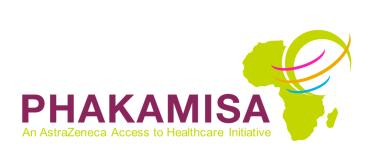
Breast and prostate cancer are growing health problems in Training – supporting healthcare worker capacity-building
South Africa. Apart from non-melanoma skin cancer, breast across all levels of care, from primary care clinics and cancer is the most common cancer in women, with a lifetime risk community healthcare centres to district and tertiary of 1 in 26 in South Africa. On average, five South African men hospitals, to ensure effective diagnosis and enhanced die from prostate cancer every day, with more than 4 300 South referral systems.
African men newly diagnosed each year. TRAINING Awareness – raising awareness to empower patients, AWARENESS ACCESS
The burden of cancer in South Africa is compounded by a lack of community healthcare workers and healthcare professionals awareness of breast and prostate health issues, cultural barriers with a focus on self-examination, identification and improved • and limited access to healthcare facilities. Training – supporting healthcare worker capacity referral timelines that result in early diagnosis and timeous intervention.
Additionally, many patients delay seeking treatment for symptoms. This has hindered efforts to combat the disease Access – ensuring that patients access clinics early with building across all levels of care, from Primary Care among lower-income communities. minimal pit stops within the referral pathway, providing adClinics and Community Healthcare Centres to District equate access to care before the progression of the disease.
In December 2010, AstraZeneca responded to this need and and Tertiary Hospitals announced the launch of the Phakamisa programme. The Commenting on the Phakamisa’s expansion and 10-year programme, implemented in 2011, brings together different milestone, Ruth Field, AstraZeneca’s market access director • organisations to help reduce the burden of NCDs on South and Phakamisa executive champion, said: “The Phakamisa Awareness – raising awareness through community
Africa’s public healthcare system. engagement campaigns, patient education and programme is part of AstraZeneca’s sustainability strategy to drive access to healthcare, and is focused on ‘uplifting’ care and
AstraZeneca is expanding the programme through public and training of healthcare professionals improving treatment outcomes for patients in South Africa. We private partnerships with multiple healthcare stakeholders are passionate about empowering people with knowledge and to improve health outcomes for patients in South Africa, the ability to make informed decisions regarding their health. • specifically addressing early detection of disease, promotion of After 10 years of implementation, the programme has reached Access – improving access to healthcare by enabling primary prevention and access to care. appropriate referral and promoting timeous over 1.63 million people through outreach activities led by
Phakamisa, which means ‘to uplift’ in Zulu, is delivered through community healthcare workers, with 19 700 women identified a three-pillared approach, with the current focus on improving intervention to achieve better patient outcomes with breast issues. We now look forward to expanding our reach breast and prostate cancer management in the public sector: through our partnerships, ensuring that we support all levels of care and the communities they serve.” Acces

sAstraZeneca Pharmaceuticals (Pty) Ltd. Reg. No. 1992/005854/07. Building 2, Northdowns Office Park, 17 Georgian Crescent West, Bryanston, 2191. Private Bag X23, Bryanston, 2021, South Africa. Tel: +27 (0)11797 REFERENCES -6000. Fax: +27 (0)11797-6001. www.astrazeneca.com activity ID: ZA-2592 expiry date: October 2022 1. South African National Cancer Registry. Cancer in South Africa 2012. Johannesburg. www.ncr.ac.za. Accessed October 2020. 2. Prostate Cancer – the facts http://mensfoundation.co.za/mens-health/prostate-cancer/ Accessed October 2020.
WOMEN IN HEALTHCARE LEADERSHIP
By Zola Mtshiya
HEAD OF STAKEHOLDER RELATIONS & BUSINESS DEVELOPMENT, BHF Earlier this year, the BHF launched ‘WE.R.EQUAL’ – an initiative that seeks to advance gender equality within the BHF universe (board level, internally and industry wide).
Initiated by the BHF management team, the initiative strives to align the organisation with the United Nations' Sustainable Development Goal (SDG) Number 5: Achieve equality and empower all women and girls by 2030.
According to the Global Health 50/50 initiative, the power balance has yet to change in spheres of influence. It notes that 27% of ministers of health worldwide are women; and men outnumber women on the boards of global public-private health partnerships by 2 to 1. The initiative further highlights that given the continued widening of the economic gender gap, it will now not be closed for another 217 years.
As a sector already powered by women, ranging from front-line workers to corporate headquarters, global health leaders need to prioritise gender equality – both in how they do busines and how they deliver health services for all.
CELEBRATING CHANGE
At the same time, we have ample reason to celebrate progress made in the past 10 years with many good examples that need scaling up. For starters, at the BHF we are encouraged to see that more and more medical schemes across the continent now have female principal officers
In line with our commitment to advancing this global agenda, we are proud to present a selection of principal officers who are trailblazing healthcare across Southern Africa. We are confident that the industry can powerfully advance the rights, dignity and diversity for everyone.
It is worth noting that Dr Katlego Mothudi, MD of the BHF, also recently re-affirmed the orgsniation's commitment to support the United Nations' women empowerment principles (WEP), which are set to guide businesses on how to promote equality and women empowerment in the workplace, marketplace and community. We would like to urge all companies to join us in this global initiative.
For more details please visit www.weps.org
Spotlight: Principal Officers
ALIDA SPRAGUE
Alida Sprague is the Principal Officer of the Fishing Industry Medical Scheme (Fishmed), a position she has held for 25 of her 40 years with the scheme. No one understands her members’ needs and wants better than she does. She understands the need for low-income families to have private medical cover, but also understands their limited income. She fully appreciates and understands Fishmed’s network of providers and knows that in order for the scheme to function optimally, her members need to stick to this network. She is passionate about the scheme and its members. She firmly believes that it is a balancing act of keeping members happy, while appreciating that the offering has to be a restricted one in order to be sustainable in the years to come.
CHARLENE SCHOEMAN
Charlene Schoeman is the Principal Officer of Cape Medical Plan. She has had the privilege of being part of the team in various roles for the last 27 years. The scheme is self-administered and has been fortunate enough to develop an IT system that it owns. Her background is in finance and economics; she holds a Bachelor of Commerce degree, completed her articles at KPMG and then later a senior management postgraduate qualification at Stellenbosch University. She was the financial manager and later the general manager of the scheme so has been involved in every aspect of its administration. Over the years, it has been pleasing to see the movement of women into critical leadership roles, which was not the scenario when she first joined the industry. Taking on the role of principal officer at a critical period in healthcare was both exciting and challenging.
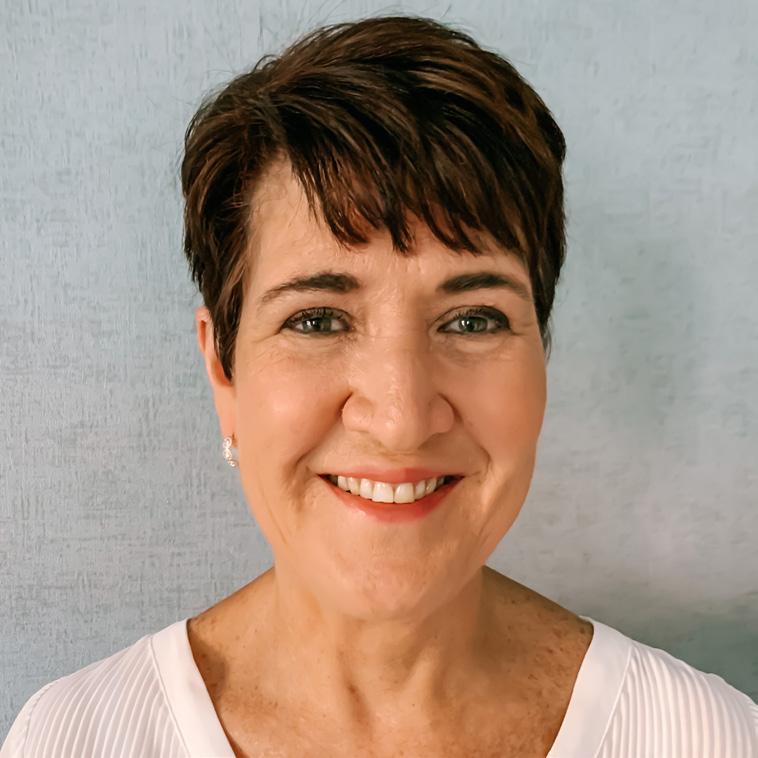
ESTHER MCLEOD
Esther Mcleod is the Principal Officer of Renaissance Health Medical Aid Fund. She is currently a Doctorate of Business Administration student at the Namibia Business School of the University of Namibia and her research proposal is titled ‘An investigation into youth perceptions and expectations on ethical leadership in Namibia'. She holds a Masters’ Degree in Business Administration, a Postgraduate Certificate in Senior Management Program, a Postgraduate Diploma and a Bachelor of Accounting Degree. She started her professional career as a secretary and administrative officer and progressively climbed the ladder to management and executive levels. Throughout her career, she has held senior and executive positions in both the public and private sector and has served on various boards .

FRANCINA MOSOEU
Francina Mosoeu has been the Principal Officer of SAMWUMED since December 2019. In the schemes industry, she served as principal officer of MEDiPOS Medical Scheme for 16 years. She has also worked at the Department of Correctional Services in the positions of head and senior manager of social services. Mosoeu holds a BA Honours in Social Sciences from UNISA and is currently busy with her dissertation for a Master in Business Leadership from the same institution. She has attended a variety of trustee development programmes. Her all-round experience in this sector makes her a force to be reckoned with. The sustainability of SAMWUMED since her appointment as principal officer has been because of her focus, determination, ability to observe her environment and not being afraid to face the competition head on.

NEO KHAUOE
Neo Khauoe is currently the Principal Officer of Polmed. She is an accomplished and multi-skilled individual with more than 25 years of managerial experience in the healthcare and medical schemes environment. Prior to joining Polmed, she was principal officer of Sizwe Medical Fund. She has also held strategic and senior roles as general manager, scheme executive, client relationship manager and provider relations manager. Some of her phenomenal successes include managing the administration and managed care contract at Metropolitan Health, which contributed to Polmed’s success as reported in the media by independent companies such as Alexander Forbes. In 2014, she spearheaded the takeover of the strategic management of Sizwe Medical Fund out of curatorship. When she left, the scheme was in a stable condition with a positive financial outlook. Since assuming the leadership of Polmed, good results have already been observed, as she has made employee satisfaction, member voice, scheme sustainability and stakeholder relations top priorities.

PHUMELELE MAKATINI
Phumelele Makatini is the newly appointed CEO and the Principal Officer of the Building and Construction Industry Medical Aid Fund (BCIMA). She has held different executive and senior management roles in government relations, business development, strategy and entrepreneurship in blue chip companies. She has a passion for education, which led to her appointment as an independent contractor at UNISA and a visiting lecturer at Wits Business School, where she lectures Masters’ students on enterprise development. She is a board member of the Legal Practitioners Fidelity Fund, and also an independent non-executive director at Sakhiwo, a fuel distribution subsidiary of Thebe Investment Corporation consisting of Sekelo and Shell South Africa. She is also a member of the Institute of Directors in Southern Africa. She holds a Masters of Management in Entrepreneurship and New Venture Creation from Wits Business School, an Honours in Politics from the University of Johannesburg and a BA in Communication Science from UNISA. She is currently enrolled at the University of Oxford Saïd Business School for a Postgraduate Diploma in Strategy and Innovation.

PONTSHO MOKOENA
Pontsho Mokoena is the Principal Officer of Barloworld Medical Scheme and holds an MSc Actuarial Science. She started her career in reinsurance 16 years ago and since then made a deliberate decision to be an insurance all-rounder, navigating between roles in both the short-term and long-term insurance space. She is passionate about issues affecting women and children, especially in areas of gross underdevelopment. After spending some time in the UK where she was exposed to the London and European markets, she returned to South Africa with a clear focus on applying the key learnings from those markets at home, with an emphasis on women’s health. She believes that the insurance industry at large, which she describes as still being very male-dominated, is starting to be perceived as an exciting industry by young talent and wants to contribute to its sustainability by attracting young female graduates and offering mentorship.

THEMBELIHLE MLOYI-NCUBE
Thembelihle Mloyi-Ncube is the Principal Officer of Bonvie Medical Aid Scheme. Thembi pioneered the registration, product design and launch of Bonvie Medical Aid (then Altfin Medical Aid) 10 years ago. To date she prides herself on having established a group of healthcare services, including primary health clinics, retail pharmacies and optometry centres, as well as established partnerships in secondary care in Zimbabwe. With a total staff compliment of just over 100 employees, the group has grown to compete with older and more established brands in the Zimbabwean market. Thembi has vast experience of over 20 years in finance and health insurance. She holds an MBA in Leadership and Sustainability. Thembi sits on various boards spanning various industries: healthcare, insurance, micro finance and a state enterprise.
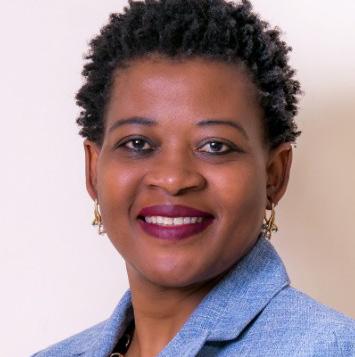
JULIA LE ROUX
Julia Roux has been ithe Principal Officer (CEO) of the Nedgroup Medical Aid Scheme for more than a decade; 11 years to be exact. She is passionate about health and fitness and has participated in a number of endurance events including Ironman, Two Oceans, Double Century road bike and the Transbaviaans mountain bike event. She has 18 years’ experience in the healthcare industry. She started off her career as a legal advisor and consultant in the insurance industry. Thereafter, she consulted to a number of different medical schemes while working at an administrator before moving into the role of head of a medical scheme.
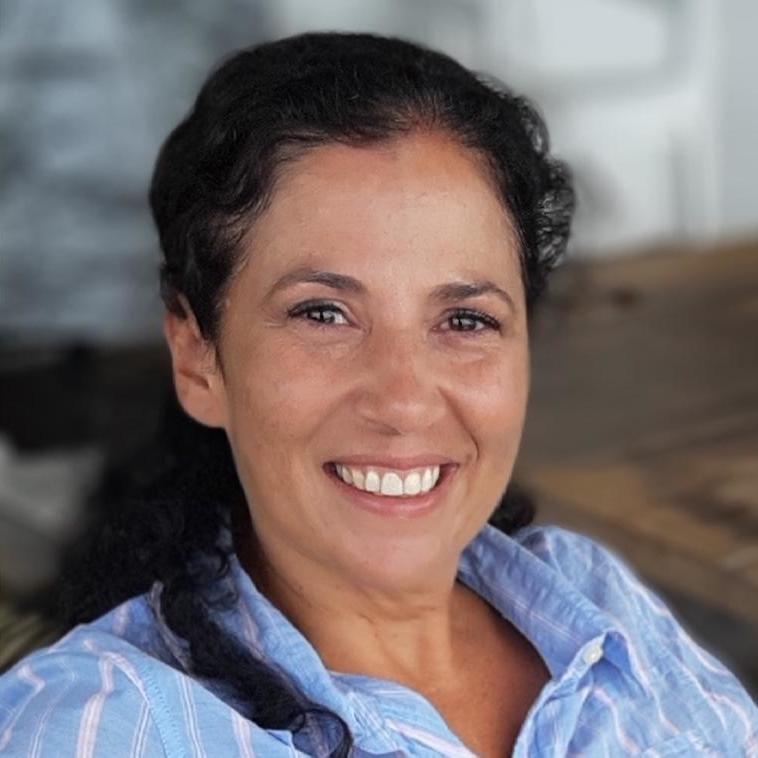
THABI MLOTSHWA
With a background in psychology, Thabi’s passion has always been serving members, and as a healthcare worker she believes that providing access to healthcare is paramount. Thabi strongly believes knowledge is power. For her, educating members, especially those from less privileged backgrounds where medical aid was once upon a time a foreign concept, is important. It is the first step toward accessing healthcare and the efficient utilisation of that scarce resource. She is also a great believer in educating others and was recognised by Old Mutual in this regard when she, her team members and her executive were nominated for that company’s ‘Educating Others’ award. Thabi has been in the financial industry since the 1990s and in the healthcare industry specifically for over two decades. Her experience has been mainly as a principal officer (of three medical schemes) and she has also held various positions in the administration space. Her medical aid career started at Old Mutual as part of the healthcare administration management team; she later became Principal Officer of the Old Mutual Staff Medical Aid Fund. Thabi has an Honours degree in psychology and an MBA.

2021 CONTRIBUTION INCREASES
BHF members navigating uncertain times
By Zola Mtshiya
HEAD OF STAKEHOLDER RELATIONS & BUSINESS DEVELOPMENT, BHF N o organisation managed to escape disruption during the COVID-19 crisis, in a blink of an eye this health crisis upended everything; from politics to the economy and food supplies at a global level.
The pandemic has had an adverse impact on medical scheme beneficiaries as they face unprecedented financial pressure. Unfortunately as the global infection rate continues to rise the challenges are set to continue well in to 2021.
That said, the role of health funders during this time has been an important one, ensuring that access to quality health services is not compromised. Medical schemes were confronted with conflicting objectives, taking a cautious trajectory of balancing beneficiaries’ financial distress, and sustaining adequate reserves to mitigate against the potential increase in claims in 2021.
The impact of the pandemic on medical schemes varies based on the schemes demographic risk profile, population covered and the levels of existing cross-subsidisation within the benefit options.
With most medical schemes announcing contribution increases for 2021, it is clear that these are the lowest that have been observed for some time by the industry, much to the relief of beneficiaries who feel the economic impact of the pandemic.
In this article we share some of the increases for 2021 shared by BHF members – thank you for putting the needs of the health citizen first.
COMPCARE MEDICAL SCHEME
Significant new benefits await CompCare members in 2021. Josua Joubert, chief executive and principal officer, says the scheme will be entering 2021 in a strong financial position armed with an array of 15 products, all with added benefits.
Joubert elaborates: “At 47% the solvency ratio of CompCare is well in excess of the 25% required by the CMS, thereby living up to its independent ranking as one of the most financially sustainable schemes."
He adds: "Healthcare consumers are increasingly focused on affordability and value and we are therefore implementing a member weighted-overall average contribution increase of 4.6% across all options in 2021, along with a host of enhanced benefits. In certain instances, our contribution increase is a low 3.5%. On the popular UniSave option, it is 4.8%, while on the entry level NetworX option it ranges between 3.5% and 5.1%, in line with salary band.”
Some scheme highlights: The introduction of a comprehensive COVID-19 benefit package, in excess of the legislated PMB package, available on all but one option. Virtual consultations were introduced to all benefit options this year and soon members will have access to a virtual consultation platform with a suite of services enabling doctors to issue electronic prescriptions and request radiology and pathology tests.
The SelfNet option has been revamped to appeal to a younger audience with an active lifestyle including sport professionals and adventure seekers. CompCare’s emotional wellness benefit, available free of charge on all options, provides a 24-hour helpline with trained clinical professionals and a referral for face-to-face counselling when required. Preventative benefits provide for every stage of life with the majority of benefits being paid from scheme risk and not from day-to-day benefits. CompCare has always offered an unlimited cancer treatment benefit and has now added a new colorectal cancer screening test for 2021. Executive medicals, comprising a full examination by a participating general practitioner and a referral to a specialist when abnormalities are detected, were introduced to the Pinnacle Option which also covers aviation medicals for pilots. The launch of a personalised concierge service, available via CompCare’s contact centre, enables members on the Pinnacle Option to optimally access healthcare benefits and services while navigating challenges associated with provider claims. CompCare offers comprehensive cover for injuries resulting from professional and adventure sports, as well as a search and rescue benefit.
FISHMED
Fishmed contributions are increasing by an average of 3.5%
IMPERIAL AND MOTUS MEDICAL AID
Imperial and Motus Medical Scheme’s contribution increase takes effect on 1 July of each year. However, due to the pandemic and national lockdown, the board of trustees applied to the Council for Medical Schemes (CMS) to postpone the July 2020 contribution increase to 1 January 2021, in order to provide some relief to the members.
The postponement was approved and this resulted in a contribution relief of R12 million for members. The board reviewed the contribution increase again in September 2020 and it was decided to increase contributions by an average of 2.9% with effect from 1 January 2021.
MAKOTI MEDICAL SCHEME
Makoti finds medical schemes’ continued growth in troubled times heartening. Hendrick Makgopela, principal officer, says that now is the time for responsible employers to ensure that they have appropriate and reliable medical scheme cover in place for their employees.
Commenting on the achievements of Makoti Scheme, he said that it had been a great year with continued growth while steadily building its reserves.
Membership growth during 2020 – 25% Solvency ratio – 62% Average age of members – 31 years Pensioner ratio – below 1% Contribution rate increase on Comprehensive Option – 6.5%, and on the Primary Option – 5.5%
“Makoti compares most favourably to the industry average beneficiary age on open schemes of approximately 35 years, and the pensioner ratio of 9.5%. These are both essential attributes, which ensure a highly favourable claims-to-loss ratio that contributes to the healthy solvency ratio of the scheme. Makoti’s increases have remained consistently low over the past five years.
“It is important to understand the percentage increase relative to the rand value amount per member per month,” he added. “To put this in perspective, on the Primary Option contributions will start from only R294 per member per month, while a family comprising a principal member, adult dependant and a child will pay less than R1 000 per month. For the Comprehensive Option, contributions start at R1 976 per member per month,” he noted.
Makoti, which has a proud 44-year track record, serves the healthcare needs of the transport, motor manufacturing, consumer goods and the hospitality industries. Special features that set the scheme apart include:
Members never have to fund co-payments – no matter whether they are in hospital receiving treatment, or utilising out-of-hospital services. The benefit richness of the scheme, which provides unlimited general practitioner consultations and freedom of choice in choosing a healthcare service provider. To ensure greater convenience and further savings for members and employers, Makoti can integrate its service offering with the on-site primary healthcare services of employers. Child dependants pay child rates up to the age of 25, providing they are full-time students or financially dependent on the principal member. The scheme is one of the most accessible to first-time entrants, as it provides quality medical cover at highly affordable rates. Unlike most medical schemes in this market, Makoti covers all chronic conditions, not just PMBs, and offers generous acute medicine benefits. The scheme also provides over-the-counter medicine benefits and covers homeopathic medicines.
“Dependants have the option to select a different GP from that of the principal member, ensuring that all the beneficiaries in the family can visit a network doctor of their choice, as and when required. The Comprehensive Option provides the same cover as the Primary Option, but with additional richer benefits including access to specialist consultations, private hospitalisation cover as well as cover for maternity benefits in private hospitals.”
NEDGROUP
In acknowledgement that these are challenging times for members, especially financially, the trustees of the Nedgroup Medical Aid Scheme (NMAS) undertook to keep contribution increases for 2021 as low as possible.
The scheme’s contribution increases therefore start at a mere 4% for the lowest-cost option, with even the highestcost option seeing an increase of only 5.5%. The weighted average annual contribution increase across all five NMAS options is 4.8%.
This has meant that the NMAS trustees were extremely conservative in terms of benefit changes and enhancements for the new year. However, given that proactive healthcare is an important scheme focus, a few benefits are being introduced or enhanced.
The first of these is a new weight management programme for qualifying members on all options, in recognition of the link between obesity and many other diseases. The scheme’s smoking cessation programme will, from 2021, also be available on all options, and not reduce members’ day-to-day benefits. Finally, because dental health is so critical to general health, a basic dental benefit has been added to the scheme’s lowest-cost option.
PG GROUP
There will be a zero increase for January-March 2021, then a 3% increase from April-December 2021. There is no increase in any benefits, with sub limits kept in place at the 2020 rate.
NAMMED
Nammed’s increase for 2021 is 3.5% across all options and all age intervals for groups and individuals.
SAMWUMED
SAMWUMED is pleased to announce the following benefit improvements for the 2021 benefit year:
Increased overall annual hospital limits on both of its options: Option A and Option B. Separate in and out of hospital benefits for the following: physiotherapy, pathology and radiology.
Inclusion of family practitioners as part of scheme network.
No more referral to State hospitals for certain procedures, therefore all procedures conducted at Private
Hospitals.
Increased chronic conditions coverage on Option A and Option B, over and above the statutory 26 chronic conditions covered by other medical schemes.
Launch of a SAMWUMED mobile application that allows members access to their personal information, including statements, benefits available, claims status and tax certificates.
Comprehensive SAMWUMED Cares wellness and preventative healthcare programme.
New and additional managed care programmes such as the back and neck programme, and the mental health programme. This is over and above the HIV, chronic medicine management and oncology programmes that the scheme already had in place in 2020.
All of this for as little as the proposed 6.5% contribution increase on both Option A and Option B, with a benefit increase on both options at CPI.
BHF & MediKredit are excited to launch the NAPPI Coded EMLs with Master Procurement Catalogue Integration. Watch your inbox for details or email marym@bhfglobal.com 10 FEBRUARY
